- Home
- Michael Wallace
I Scarce Can Die (Quill Gordon Mystery Book 5)
I Scarce Can Die (Quill Gordon Mystery Book 5) Read online
I Scarce
Can Die
A Quill Gordon Mystery
Michael Wallace
Amazon Readers Praise
the Quill Gordon Mysteries
(Rating averages accurate as of publication date)
The McHenry Inheritance
Average rating 4.1 out of 5 stars
“I really enjoyed reading this story and getting to know the characters. In a very short time, I found myself caring what happened to them. I am a mystery fan, and this definitely was a fun ride.”
—Mountain Mom
“Quill Gordon courts trout, a lady, and justice, and there’s a little ‘catch and release’ applied to all three in this most entertaining murder mystery.”
—Edan D. Cassidy
“Well written good story. Ready for next book about these people. Could be a start to a fun set of books.”
—Tim Smith
Wash Her Guilt Away
Average rating: 4.7 out of 5 stars
“The characters are so well drawn, each one seemed to be plucked from real life and placed into the story.”
—Sentia
“As languid and dark as a quiet trout stream on an overcast day, the second Quill Gordon novel is a pleasure to read … even the weather has a plot twist.”
—Judy Parrish
“The fly-fishing descriptions were amazing. I was thoroughly engaged. I couldn’t figure out who dunnit until the very end … Great story.”
—Lovedrama
Not Death, But Love
Average rating: 4.8 out of 5 stars
“This is my third Michael Wallace/Quill Gordon book, and I enjoyed this as much as the other two.”
—Steve Reese
“Perfect for summer vacation reading. Good character development and plot, with some nice surprises.”
—Doug Simmons
The Daughters of Alta Mira
Average rating: 4.8 out of 5 stars
“As a lifelong devotee of good mystery novels, I can testify that the Quill Gordon mysteries are really fun. And in my opinion, they keep getting better.”
—Mike Milward
“Totally enjoying these books, great read. My husband and I are both reading [them].”
—JannyV
I Scarce Can Die
Copyright © 2017, Michael Wallace
All Rights Reserved
Without limiting the rights under copyright reserved above, no part of this publication may be reproduced, stored in, or entered into a retrieval system, or transmitted in any form by any means (electronic, mechanical, photocopying, recording or otherwise) without the prior written permission of the copyright owner.
This is a work of fiction and imagination, and all names, places, characters and incidents are either imaginary or used fictitiously. Any resemblance to real people (dead or alive), events, locales, or business establishments is purely coincidental.
Cover Design: Deborah Karas, Karas Technical Services
Also by Michael Wallace
Quill Gordon Mysteries
The McHenry Inheritance
Wash Her Guilt Away
Not Death, But Love
The Daughters of Alta Mira
Nonfiction
The Borina Family of Watsonville (California history)
In the spirit of Dorothy L. Sayers
and J.S. LeFanu
For Dulcie and Ed,
who have been waiting.
Fare thee well — thus disunited,
Torn from every nearer tie.
Sear’d in heart, and lone, and blighted,
More than this I scarce can die.
—BYRON, Fare Thee Well
Rude Awakening
HE DIDN’T SO MUCH WAKE UP as come to, lying on the couch in the living room. It was dark outside, and he had a dry mouth, a splitting headache and a knot in his stomach — the body’s way of reminding him he’d been blind drunk. He also needed to pee in the worst way.
He tried to look at his watch, but it wasn’t on his wrist where it was supposed to be. Had he lost it in a bar somewhere? Had he taken it off when he got home? What happened when he got home, anyway? Had she made a scene again? She always did, never understood. But he loved her anyway.
There seemed to be a dim light coming into the living room from somewhere. Maybe the kitchen. Maybe he’d gone in there and taken off his watch.
He started to get up, but groaned and slumped back on the couch. The need to pee was competing with the nausea, and the nausea had just won the first round. He knew he couldn’t let it win, and after a minute forced himself up enough to see over the back of the couch.
The kitchen light cast some illumination on the wall he was looking at — enough for him to see the blood spatters.
He didn’t immediately realize what they were. For a few seconds, he thought he was seeing spots before his eyes, in addition to everything else. Then his eyes drifted down to the body on the floor.
It was her, lying in a grotesque pose, utterly still. He knew she was dead, just as he knew it was her, though her face, smashed to a bloody pulp, was unrecognizable.
What happened?
That was his first thought. The second was:
Did I do this?
I couldn’t have, he thought. I was out drinking last night. What do I remember? Think, think. I remember playing darts at the bar and getting into the car, hoping there wouldn’t be a Highway Patrol car or sheriff’s deputy between there and home. That was, what, eleven o’clock?
After that, nothing.
With all the effort he could muster, he forced himself to get up, move around the couch and kneel by her body. He reached down to touch where her face had been and didn’t notice that the cuff of his shirt picked up a smudge of blood.
A hammer was lying on the floor, a few feet from her body. He took it in his hand and stared at it. It looked like theirs, but it was a brand sold by the local hardware store, so he couldn’t be sure. He could, however, be sure it was covered with blood. Her blood. It had to be.
Did I do this?
He asked himself the question again and realized he couldn’t be certain. Strain though he might, he could remember nothing after getting into the car.
I couldn’t have done it, he thought. I loved her. I loved her no matter what, and she loved me.
Suddenly overcome with emotion, he began to cry — wracking, heaving sobs that jerked his torso in a way that further agitated his stomach and caused the nausea to overwhelm him.
He tried to get up, but found it impossible to stand up straight. Bent over and stumbling, he barely made it to the toilet. For five minutes, he leaned over the toilet bowl on his knees, alternately retching and sobbing, his entire body shaking. When he finished, gasping for breath, he realized he had wet his pants.
I need a drink.
Feeling better, but only marginally, he stood up and began the rounds of the house, looking for a bottle in all the usual hiding places.
He came up empty. He was sure there had to be a pint somewhere, but he couldn’t find it. Damn her. Had she gotten to it first and thrown it out? Too late to do anything now. He’d have to take it from here without the comfort of alcohol. Or, more precisely, without the comfort of any more alcohol.
The nausea was coming on again, but he had to make the call first. He’d ended up in the kitchen, and picked up the phone there. He heard a dial tone, which meant it hadn’t been disconnected for non-payment.
With shaking fingers, he punched 4-1-1 on the keypad.
“Directory assistance,” said the voice on the other end.
“Shit!” He slammed the receiver dow
n. He didn’t know if he could make it through another call without vomiting, but tried anyway.
“Nine-one-one,” said a no-nonsense female voice on the other end. “What’s your emergency?”
“She’s dead,” he blubbered into the receiver. “She’s dead.”
“Who’s dead, sir, and what’s your address?”
“My wife is dead, and I don’t know what happened.”
Opening, Shaughnessy Gallery
IN THE SECOND HALF OF AUGUST, it is not uncommon for San Francisco to experience a brief heat wave. For three to five days, the summer fog bank retreats well offshore, the temperatures climb into the high 80s or 90s, and for once, the tourists in shorts and T-shirts are properly attired. Then the fog — known to locals as God’s air conditioning — rolls in again and life returns to normal.
It was the third day of such a heat wave, a Friday night. Shortly before seven o’clock, it was still 80 degrees outside, and the heat, trapped in the canyons created by the tall buildings, was stagnant and stifling. At Shaughnessy Gallery, two blocks off Union Square, a new exhibition was opening, “Sagebrush Sketches: Paintings by Elizabeth Macondray.” The gallery was air-conditioned, and that fact, coupled with the large number of friends the painter had made during her short time in San Francisco, guaranteed a large turnout.
The crowd at the opening reception was steadily growing, the cheap wine was flowing freely, and the artist, looking lovely in a burgundy cocktail dress, was mingling happily with the guests. She was a natural-born mingler and enjoyed making the rounds of the room.
Quill Gordon, on the other hand, was no mingler. He stood off in a corner looking at a painting of cattle grazing in a pasture, with dry, stony mountains in the background. He was wearing a navy blazer from Cable Car Clothiers, tan dress slacks from Orvis, a powder blue button-down shirt from Nordstrom, burgundy and light blue striped tie from Brooks Brothers, and Allen Edmonds loafers. His socks, a birthday present from the artist, were navy and peppered with images of the Quill Gordon trout fly. The navy matched his blazer, and the tan hackles of the trout fly went with his khakis. Standing a bit over six-four, in his late thirties, and with a face more honest than handsome, he projected the image of a man lost in thought, who wanted to be left alone.
He was looking at the painting, titled “Serendipity Valley,” trying to figure out what it was about the light that made it seem so right, even though it wasn’t strictly accurate. It took him a while to register that a stunning redhead — late twenties, wavy hair, emerald dress — had appeared at his side.
“You’re staring at that painting as if you know the place,” she said.
“Actually, I do.”
“Do you know the artist?”
He nodded, still looking at the painting.
“How do you know her?”
Gordon looked across the room at Elizabeth, happily chatting with four other people.
“Very well,” he said.
“Oh, how nice. I just saw someone I have to say hello to. Catch you later.” And she was off.
The people he was supposed to meet apparently hadn’t arrived yet, and he decided to step outside for a breath of fresh air. Fresh was not an accurate description. The heat seemed to trap the vehicle exhaust between the buildings, and cooking odors from a nearby Thai restaurant hung in the air. Three doors down from the gallery was a men’s clothing store, with a window display of stunningly patterned ties and made-to-order shirts. He thought that with his long arms (he’d been a very good college basketball player) it might make sense to custom-order some shirts. He made a note to himself to come back next week.
“You already have enough clothes, Gordon,” Elizabeth said, slipping up behind him, then after a pause, “They’re here now. Let me take you to them so I can get back to meeting with the guests.”
“How’s it going?”
“Wonderfully. They’ve sold three paintings in the first hour.”
“Then you should probably raise the prices.”
“Several people wanted to know if the two paintings on loan from the Quill Gordon collection were for sale.”
“I hope you told them not at any price.”
“I did. Come on, let’s go.”
She led him back into the gallery and through a door at the rear, into a narrow hallway. On the right was a unisex bathroom, and on the left was a closed door. Elizabeth rapped on it twice and was told to come in.
“Take it from here,” she said. “I need to get back.”
Gordon opened the door. It led into a cramped office, 8-by-8 feet, partially bisected by a four-foot desk. Behind the desk sat the redhead in the emerald dress and a stocky man in his early fifties with thick black hair, flecked with gray. They both rose.
“Melissa McConnell,” the woman said, extending her hand. “Sorry I didn’t get a chance to introduce myself earlier.”
“And I’m Clarence Jefferson,” the man said. “Pleased to make your acquaintance. We’ve heard a lot about you.”
They sat down again, and Gordon sat in the room’s remaining chair, a standard-issue swivel number.
“I don’t know how much Elizabeth has told you,” Melissa said.
“A little,” Gordon replied. “Why don’t you just start at the beginning.”
Melissa looked at Clarence, and he began.
“Several years ago, I got involved with an organization called NGNC. That stands for Not Guilty Northern California. I teach sociology at City College, and I’ve always been interested in the way our criminal justice system works — or doesn’t. NGNC looks into cases when the question of a wrongful conviction has been raised and all the ordinary appeals have failed. All the major law schools in the Bay Area have faculty who volunteer their services, and when a strong case can be made that an innocent man or woman has been convicted, they petition for a writ of habeas corpus to overturn the conviction. It’s a good cause, and I’ve enlisted several students and faculty members at the college to volunteer. One of them is Melissa.” He looked at her.
She nodded. “I went through the NGNC training program to learn how to conduct interviews and gather information. They get a lot of requests from people wanting their cases looked into, and each one gets assigned to a volunteer for an initial investigation. At the end of last month, I got my first case, a man named Gary Baxter, who was convicted of killing his wife, Connie, in a place called Dutchtown. Have you ever been there?”
“Not really,” Gordon said. “I drove by it or through it on the way back from a fishing trip a few years ago. About all I can remember is that it’s pretty small and isolated — even for a town in the mountains.”
“It was one of the original Gold Rush boomtowns, hard as it is to believe today. Anyway, Gary grew up there, graduated from high school, kicked around for a couple of years, then joined the Army. He served in Desert Storm, came back, married a woman he met at a community college and kicked around some more at various jobs. The marriage was tempestuous, and his drinking was getting worse.
“Early in the morning on September 14, 1996, almost two years ago, 911 got a call from him. He was hysterical and kept babbling about Connie. A sheriff’s deputy went over and found her lying in a pool of blood on the living room floor. There was a bloody hammer next to her, and her face and head had been smashed in pretty good. Gary reeked of alcohol and said he’d just woken up from a bender with a fierce hangover when he saw her body lying on the floor.”
“He was sleeping in the living room?” Gordon asked.
“He apparently passed out on the couch. Anyway, they took him down for questioning and started leaning on him about what he’d done. After a couple of hours, he finally broke down and said, ‘I guess I must have done it.’ That sealed his fate. The sheriff’s department started putting together the case against him.”
“But why did he confess if he didn’t do it?” Gordon asked.
“It was hardly a full confession. He’d been saying all along that he didn’t remember anything, and
finally broke down under pressure.”
Clarence coughed. “Actually,” he said, “there have been several cases of people who confessed to a crime and were later exonerated by DNA evidence. Generally, they were poor, had been in trouble with the law before, and didn’t expect to get a fair break.”
“Which is not a bad description of Gary Baxter,” Melissa said. “Three DUIs and a number of visits from sheriff’s deputies when he and his wife got into arguments. He was made to order as a fall guy.”
“Maybe so,” Gordon said, “but it sounds as if the case against him was pretty strong.”
“The jury surely thought so,” Clarence said. “Small counties like that don’t have the court dockets we do, and the case went to trial in four months. The jury was out less than 45 minutes before finding him guilty of second-degree murder. It probably took them longer to pick a foreman than to reach a verdict.”
“Then why do you think he may not be guilty?”
“Three weeks ago,” Melissa said, “I talked to him at Folsom Prison. He’s still wondering if he really did it, but he can’t remember a thing that happened after ten o’clock the night she was killed. In prison he’s gotten into Alcoholics Anonymous and developed a deep Christian faith. And when I talked to him — you’ll probably laugh at this — I just couldn’t believe he’d kill a defenseless person, let alone a woman.”
Gordon said nothing for a moment. His father, a judge, had told him stories about women who had been emotionally seduced by prisoners — men who, when they wanted to be, could be charming and plausible.
“So you judged him by the look in his eye and trusted your instincts?” Gordon said.
“That makes it sound superficial,” Melissa said. “But it’s not far off the mark. There are a couple of other things, though. From his description of the trial, it sounds like some of the evidence might have been inconsistent.”
“Do you have a transcript?”
“No, but his attorney still should, and Gary could ask him to share it with you. Still, it comes down to two things that seem right in terms of his story.”

 Crowlord (The Sword Saint Series Book 2)
Crowlord (The Sword Saint Series Book 2) Crowlord
Crowlord The Red Sword- The Complete Trilogy
The Red Sword- The Complete Trilogy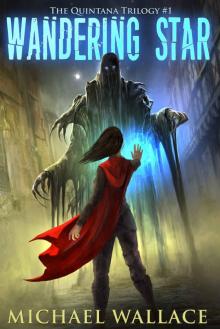 Wandering Star (The Quintana Trilogy Book 1)
Wandering Star (The Quintana Trilogy Book 1)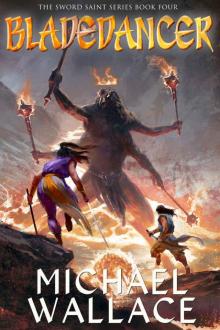 Bladedancer
Bladedancer Sword Saint
Sword Saint The Alliance Trilogy
The Alliance Trilogy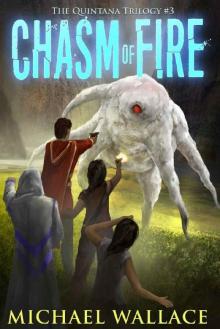 Chasm of Fire
Chasm of Fire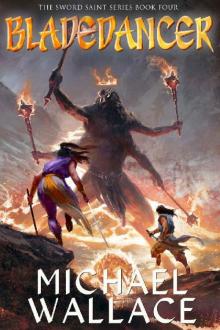 Bladedancer (The Sword Saint Series Book 4)
Bladedancer (The Sword Saint Series Book 4) The Devil's Deep
The Devil's Deep Shadow Walker (The Sword Saint Series Book 3)
Shadow Walker (The Sword Saint Series Book 3) Starship Blackbeard
Starship Blackbeard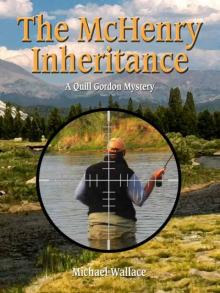 The McHenry Inheritance (Quill Gordon Mystery Book 1)
The McHenry Inheritance (Quill Gordon Mystery Book 1) Sun King (The Void Queen Trilogy Book 3)
Sun King (The Void Queen Trilogy Book 3)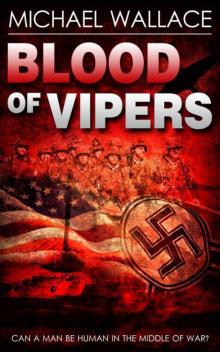 Blood of Vipers
Blood of Vipers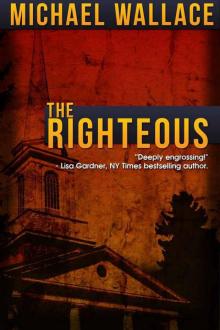 Righteous - 01 - The Righteous
Righteous - 01 - The Righteous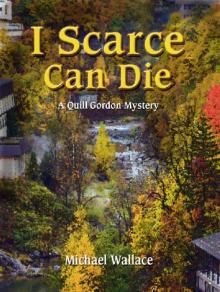 I Scarce Can Die (Quill Gordon Mystery Book 5)
I Scarce Can Die (Quill Gordon Mystery Book 5)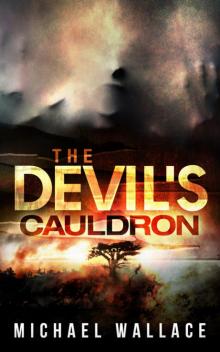 The Devil's Cauldron
The Devil's Cauldron The Wicked (The Righteous)
The Wicked (The Righteous) Crow Hollow
Crow Hollow Righteous03 - The Wicked
Righteous03 - The Wicked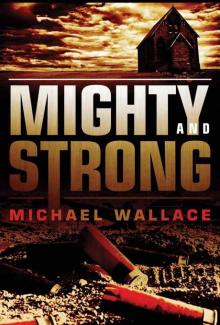 Righteous02 - Mighty and Strong
Righteous02 - Mighty and Strong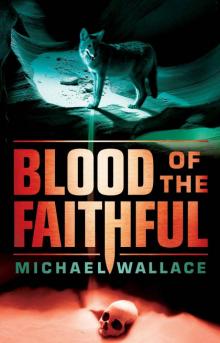 Blood of the Faithful
Blood of the Faithful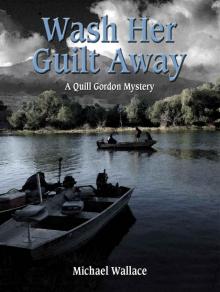 Wash Her Guilt Away (Quill Gordon Mystery Book 2)
Wash Her Guilt Away (Quill Gordon Mystery Book 2) The Kingdom of the Bears
The Kingdom of the Bears The Emerald Crown (The Red Sword Trilogy Book 3)
The Emerald Crown (The Red Sword Trilogy Book 3) The Dark Citadel
The Dark Citadel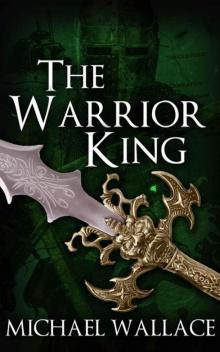 The Warrior King (Book 4)
The Warrior King (Book 4) Rebellion of Stars (Starship Blackbeard Book 4)
Rebellion of Stars (Starship Blackbeard Book 4)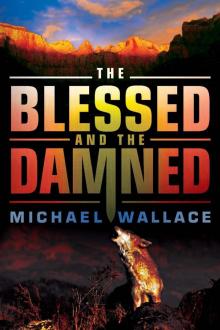 Righteous04 - The Blessed and the Damned
Righteous04 - The Blessed and the Damned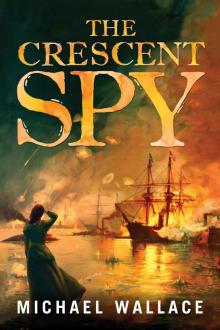 The Crescent Spy
The Crescent Spy Queen of the Void (The Void Queen Trilogy Book 1)
Queen of the Void (The Void Queen Trilogy Book 1)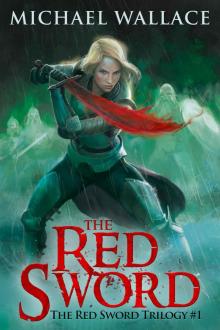 The Red Sword (The Red Sword Trilogy Book 1)
The Red Sword (The Red Sword Trilogy Book 1) The Sentinel (The Sentinel Trilogy Book 1)
The Sentinel (The Sentinel Trilogy Book 1) The Golden Griffin (Book 3)
The Golden Griffin (Book 3)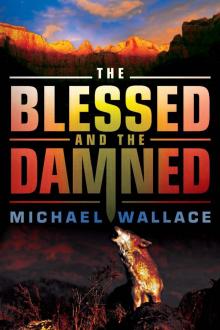 The Blessed and the Damned (Righteous Series #4)
The Blessed and the Damned (Righteous Series #4)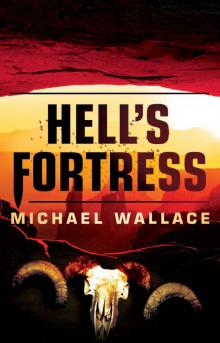 Hell's Fortress
Hell's Fortress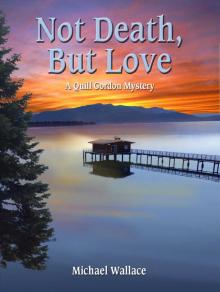 Not Death, But Love (Quill Gordon Mystery Book 3)
Not Death, But Love (Quill Gordon Mystery Book 3) Destroying Angel
Destroying Angel The Free Kingdoms (Book 2)
The Free Kingdoms (Book 2) Dragon Quadrant (The Sentinel Trilogy Book 2)
Dragon Quadrant (The Sentinel Trilogy Book 2) Shattered Sun (The Sentinel Trilogy Book 3)
Shattered Sun (The Sentinel Trilogy Book 3)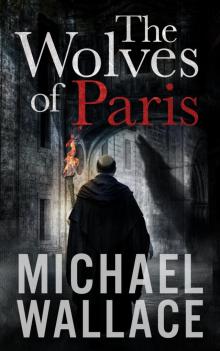 The Wolves of Paris
The Wolves of Paris Lords of Space (Starship Blackbeard Book 2)
Lords of Space (Starship Blackbeard Book 2) Dreadnought (Starship Blackbeard Book 3)
Dreadnought (Starship Blackbeard Book 3)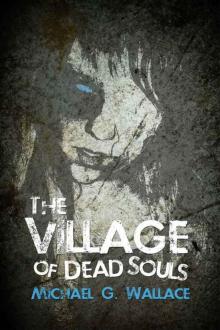 The Village of Dead Souls: A Zombie Novel
The Village of Dead Souls: A Zombie Novel The Black Shield (The Red Sword Book 2)
The Black Shield (The Red Sword Book 2)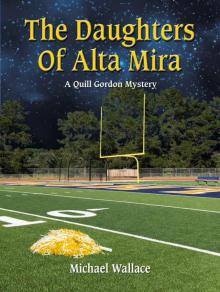 The Daughters Of Alta Mira (Quill Gordon Mystery Book 4)
The Daughters Of Alta Mira (Quill Gordon Mystery Book 4) Mighty and Strong (The Righteous)
Mighty and Strong (The Righteous)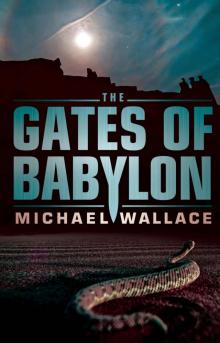 The Gates of Babylon
The Gates of Babylon